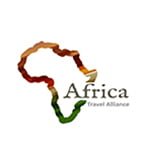Ghana Historical Tours
Ghana Educational Tours
Ghana Mammal Tours
Ghana Butterfly Tours
Ghana Eco Tours
Ghana Day Tours
Ghana Biking Tours
Ghana Walking Tours
Benin Tours
Togo Tours
Sao Tome & Principe Tours
Ghana Wildlife Safari
Ghana Study Trips
Responsible Travel
Ethical Tours
Senegal Tours
Sierra Leone Tours
West Africa's Premier Travel Company
Building schools, protecting rainforests, having a sustainable positive impact locally.
Ghana Tours
Award-winning, ethically arranged, locally guided, authentic tours that benefit locals and the environment
See our Ghana Tours
Award-winning local expert guides
Traditional naming ceremonies
Panafest and Emancipation Tours
Black History Tours
Sankofa return to your roots tour
Ancestral pilgrimage tours
Atonement and Reconciliation Tours
Beyond the return tours
Ghana’s best expert local guides
Scheduled year-round tours
Ashanti’s tours support conservation
Tailored tours for specific species
Bird, butterfly, and mammal tours
Birding and Photography Tours
Birding and culture tours
Tours to fit all budgets
School, College and University study trips
Educational exchange programmes
Cultural exchange programmes
Community service trips
Rural immersion
Fully insured for international students
Safety and risk assessment planning
Award-winning local guides
Scheduled year-round departures
Customized tailor-made tours
Culture and wildlife tours
Culture and beach relaxation
All-inclusive tour packages
Tours that benefit locals
Tours to fit all budgets
Award-winning local guides
Scheduled year-round departures
Customized tailor-made tours
All-inclusive tour packages
Wildlife photography tours
Wildlife and culture tours
Wildlife and beach relaxation tours
Expert local guides
Customized butterfly tours
Butterfly photography tours
Research trips
Mothing tours
Dragonfly tours
Fully guided tours
Tailor made itineraries
On and off-road riding
All fitness levels catered for
Mountain bikes provided
Support vehicle available
Customized tailor-made tours
Culture, wildlife and birding tours
Wli waterfalls and Tafi Atome tours
Cape Coast and Elmina Tours
Kakum National Park Tours
Bead and Batik making tours
Akosombo day tours
Accra city tours
Nightlife tours
Award-winning local guides
Customized tailor-made tours
Authentic off the beaten track tours
Wildlife tours supporting conservation
Cultural immersion tours
Village homestay experience
Local culinary tours
Fully guided tours
Tailor made itineraries
All fitness levels catered for
Support vehicle available
Hiking, walking and wildlife tours
Hiking, walking and culture tours
Award-winning local expert guides
Scheduled year-round departures
Customized tailor-made tours
History and wildlife tours
History and beach relaxation
All-inclusive tour packages
Tours that benefit locals
Tours to fit all budgets
School, College and University study trips
Educational exchange programmes
Cultural exchange programmes
Community service trips
Rural immersion
Fully insured for international students
Safety and risk assessment planning
Award-winning local guides
Scheduled year-round departures
Customized tailor-made tours
Tours in culture, history and wildlife
Authentic off the beaten track tours
Tours to fit all budgets
Voodoo festival tours
Community development
School construction
Rainforest Conservation
Sports coaching
Medical
Education
Ashanti Ghana’s Premier DMC
Meet and greet
Airport transfers
Hotel bookings
Internal flight bookings
Transfers and transportation
Conference and event logistics
Tours and excursions
Our small group all-inclusive scheduled tours operate year-round, alternatively we can design private customized tours for individuals, couples, families, small or large groups
Our priority is to ensure you have the best experience possible during your time touring with us
Our Destinations
Travelling with our local award-winning guides opens doors and experiences that add so much more to your overall experience
See our Destinations
Award-winning local guides
Scheduled year-round tours
Customized tailor-made tours
Ghana vehicle rentals
Multi country tours
Click to see all our Ghana Tours
Award-winning local guides
Scheduled year-round tours
Customized tailor-made tours
Togo vehicle rentals
Multi country tours
Click to see all our Togo Tours
Award-winning local guides
Scheduled year-round tours
Customized tailor-made tours
Benin vehicle rentals
Multi country tours
Click to see all our Benin Tours
Award-winning local guides
Customized tailor-made tours
Sao Tome vehicle rentals
Multi country tours
Click to see all our Sao Tome and Principe Tours
Expert local guides
All-inclusive tour packages
Customized tailor-made tours
Multi country tours
Click to see all our Senegal Tours
Expert local guides
All-inclusive tour packages
Customized tailor-made tours
Multi country tours
Click to see all our Sierra Leone Tours
Expert local guides
All-inclusive tour packages
Customized tailor-made tours
Multi country tours
Click to see all our Liberia Tours
Award-winning local guides
All-inclusive tour packages
Customized tailor-made tours
Ethiopia vehicle rentals
Click to see all our Ethiopia Tours
Our private customized tours can be designed around any area of interest and to fit all budgets
Our priority is to ensure you have the best experience possible during your time touring with us
Rent A Car
4x4, mini-bus or bus in West Africa
Our extensive network of quality, well serviced and maintained vehicles are carefully selected to meet your exact needs
Ghana Car Rentals
Saloon
4 x 4
Minibus
Bus
Coach
Your Safety is Our Priority
Our vehicle rentals cover all locations in Ghana and include experienced safe drivers and fully comprehensive insurance
Rent a car in Togo, Benin, Sao Tome and Principe
Why Ashanti
Ashanti African Tours are the leading West African based Travel Company committed to ethically arranged tours, our core values “PURPOSE BEFORE PROFIT” are evident through our many projects helping locals and conservation
Why Travel With Ashanti African Tours
English, French and German speaking
Advanced first aid trained
Caring and friendly
Logistically excellent
Knowledgeable
Professional
Personable
Passionate
We plant 3 indigenous forest trees for every client that books with us. On average offsetting our clients flight to West Africa 15 times over if the trees live to maturity.
Passionate in creating your perfect trip
Focussing on details important to you
Never compromising on quality
Ensuring you have the best local guides
Always available to answer your questions
Pre and post travel support
Safety is our priority
No hidden expenses
To produce that perfect trip of a lifetime for our clients, exceeding expectations whilst organizing our tours in an ethical, sustainable way putting the environment and communities we visit at the heart of what we do.
Purpose before profit
Friendship
Sustainability
Transparency
Continued learning
Environmental stewardship
Honesty
Trust
There are always a multitude of questions any traveller has prior to booking a trip. Click here to see the most frequently asked questions.
Fully insured to receive international travellers
Local guides with advanced first aid training
Staying informed and local knowledge
Risk assessment procedure for all trips
Comprehensive vehicle safety policy
Evacuation plan for all our tours
24-hour emergency support
Communication
Ashanti do not just write about responsible tourism on our website to attract bookings, we actively practice it
Choosing Ashanti as your preferred local tour company makes you a part of our incredible journey
Dream - Plan - Travel
Ashanti’s strength is being able to customize all tours to fit your exact requirements
Your Trip - Your Way
Many of us love the freedom of travelling solo. A time of self-discovery that builds confidence where you control where to go and what to see. Our customized tours for solo travellers can be guided by female or male local guides
Ashanti’s travel team are experienced in organising and leading small and large group travel in West Africa. Educational study trips, alumni travel programs, customized tours for tour operators and private travel groups. Click to see the many benefits of group travel with us…
Everyone has their own style of travelling which can be determined by many factors like, preferred traveller experience, area of interest and the budget of traveller
Customized Tours to fit all budgets
Expeditions to remote, seldom visited locations
Customized tailor-made journeys
Hiking and biking expeditions
Rural village life experiences
Rainforest trekking
Wildlife tracking
Research trips
Fully guided tours
Local homestay options
Clean, safe budget accommodation
Getting around on public transport
Eating with the locals
Our customized tailor-made luxury tours include:
Local expert guide and concierge service
Dedicated driver, executive vehicle and fuel
Best hotels and lodges used at each location
Our passion is creating the best traveller experience for our clients
Our Price Promise
If you receive cheaper quotes from other legitimate companies, we will try to match or improve the price for the exact same tour package offered.
Client Reviews
See what some of our clients have to say about Ashanti African Tours
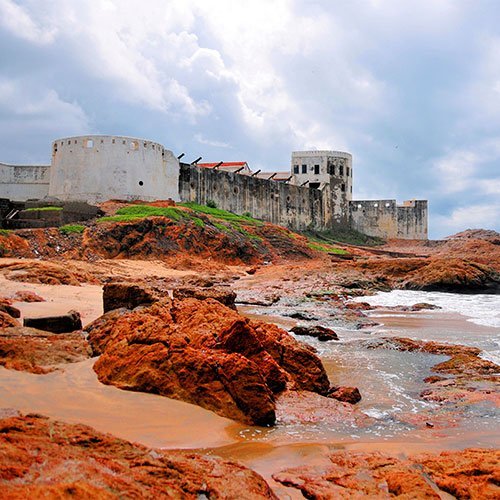


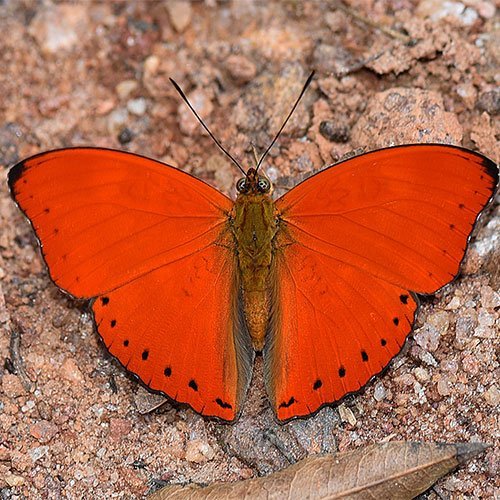
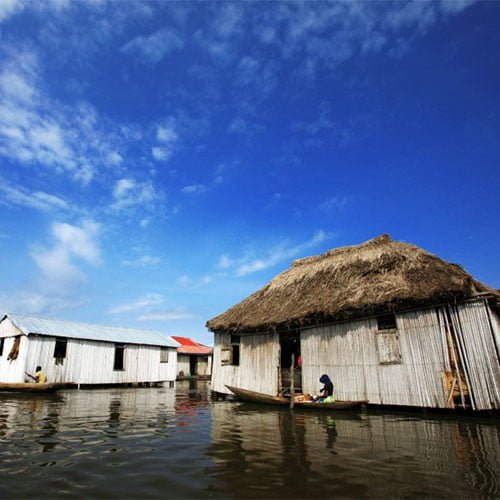
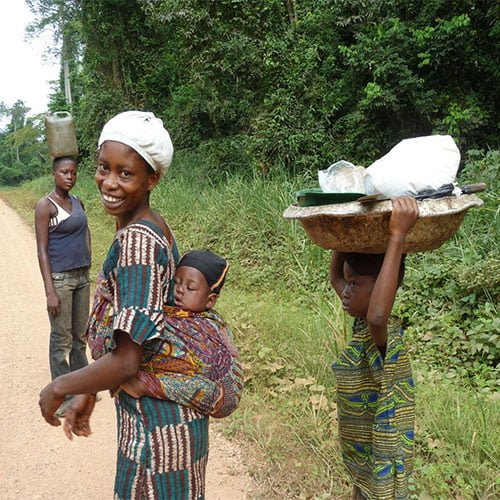

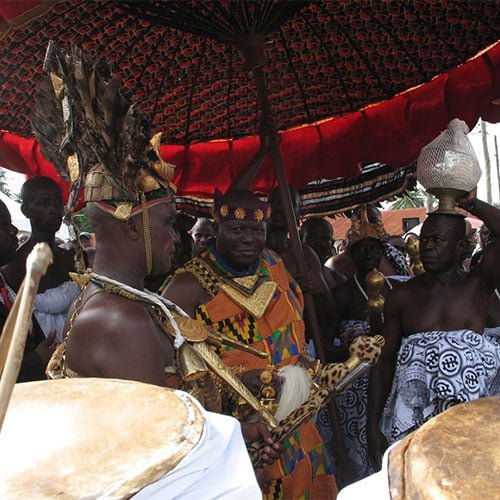
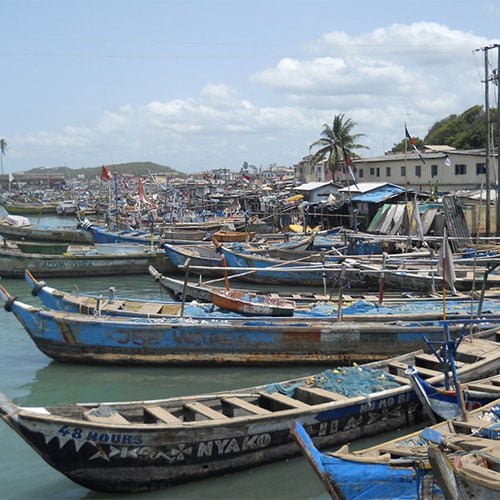
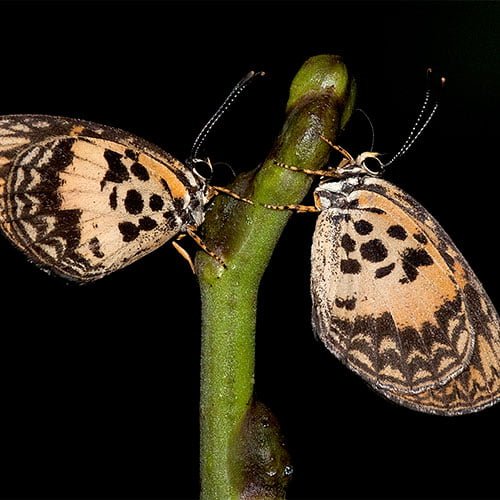
EXCELLENTVerified A Birding watching trip to Ghana Visited from 15th Oct 23 to 31st Oct 23 for a Birdwatching holiday organised by Ashanti. We had an excellent birding guide and driver. I have birded throughout the world and Philip, our guide, was superb, as good as any I have been with. He was punctual, informative, helpful and considerate. He went out of his way to ensure we saw the Nkulengu Rail, which had proved to be rather elusive. We saw nearly all our target birds totalling 366 species for the trip. Philip kept us well provided with fruit and snacks throughout the trip. My wife and I are both 75+ and Philip and our driver Eric made sure we were looked after and carried most of our luggage when needed. Accommodation was variable, though travelling to remote parts of Ghana one does not expect 5 star facilities. The Ashanti lodge at Ankasa was excellent with a comfortable, clean and well lit room plus good air conditioning and bathroom facilities. The accommodation at Kakum, Bonkro and Kumasi was also fine. The first night nr Accra was poor with a very poorly lit room, no hot water and poor food. Mole was a wonderful setting with reasonable food but a below par room with virtually no air conditioning, poor bathroom facilities and very dim lighting. What is it about places that cannot provide adequate lighting? In spite of my comments regarding some of the accommodation overall this was a very good trip and certainly value for money. Finally the ladies in the Ashanti office were very efficient answering e mails immediately, even at weekends! They provided us with all the documentation we needed for visas extra and any question was answered well. Well done Ashanti!Verified Private 19-days Ghana Birding & Nature tour If you ever plan to visit Ghana for its wounderful birds and nature you just have to book a private trip with Ashanti African Tours. We (four birders and photographers from Sweden) started to plan this trip back in August 2022 and we started an email conversation with Rosematilda! She helped us forming this trip and it proved to be a great success! Rosematilda replied very quickly on all our weird questions and gave us relevant information on everything! Doing a private trip gives you the opportunity to stay a bit longer on the most precious places like Ankasa NP, Mole NP and so on! Giving them a "most-wanted" list of birds you like to see helps the guides to plan the trip in best way! The plan was to arrive in Accra 20 Oct 2023 but flights were delayed do our trip started the day after! Our luggage was missing so the start was not what we wanted! However, our guide Jackson who met us at the airport helped us reporting the missing bags and then we jumped into the car with the driver Ibrahim waiting for us! We visited Kakum NP with the famous Canopy walk, further on to Ankasa Reserve, Abrafo Forest & Picathartes nesting site, Bonkro Forest, Bobiri Butterfly Sanctuary, Mole NP, one stop to see Egyptian Plover and then back south to Atewa Range. All in all we managed to see and hear more than 380 bird species, many of them seldom seen outside Ghana! Our guide Jackson was a real expert with eyes and ears incredibly sharp! He spotted the smallest movement far away in the dense vegetation and even the faintest bird sound was identified and often also visible after some time! The driver Ibrahim was always glad, showing his nice big smile every time! Due to the delayed luggage we had to fix some clothing, rubber boots etc and Ibrahim and Jackson was very helpful and know where to stay and shop whatever we needed! Overall Ashanti Tours, Jackson and our driver Ibrahim made this trip a real success with so many birds seen and the real Ghana explored during our days in Ghana! Don´t wait, plan your trip together with Ashanti and it will be perfect!Verified Come Home with us to Ghana. We were a total of 21 women and 1 man. The purpose of our trip was first to serve, and share our blessings with those in need. The second part was to learn about our ancestor trial and tribulation. Our Tour guides Oscar and Celestina, and the whole of the Ashanti African Tours we all say thank you for going above and beyond the call to make our stay so memorable and taking care of our friend while she was in the hospital. As the travel advisor all I can say is thank you from my entire group.Verified Great destination -- Ghana! Our 10 day tour of Ghana was put together by Ashanti for 4 of us --- We could not be happier --Foster out birding guide was superb! We saw and heard so many new species of birds and mammals. Our driver Frank was wonderful. Both gentlemen took care of us and showed us so many amazing culture sites and the natural beauty of a fantastic birding destination ---Ghana!! Thank you to Ashanti.Verified Birding and Culture tour of Ghana We joined guide Foster and driver Frank from Ashanti for a 12 day birding and culture trip. Foster is an amazing guide, very friendly, patient and his birding ability is off the charts. He informed us about many Ghanian customs, helped us pick delicious local meals, made sure we were comfortable and well fed and hydrated. Frank kept us safe on the roads and added to the fun. The birding was fantastic, the people very friendly and always smiling, the local foods are delicious. We absolutely recommend Ashanti African Tours for a great time in Ghana. We are already planning our next trip with Ashanti. Ashanti has several set tours but we wanted something a bit different and they worked out an itinerary that gave us exactly what we desired. Our lodging was very comfortable, air conditioned and safe. In addition to birding we got to see West Africa's oldest Mosque, Colonial slaving castles, waterfalls, public fish markets and remote villages. Foster capably taught us about each location.Verified Fantastic birding trip We had an excellent 7 days birding and butterflying trip to Ghana, visiting Kakum, Ankasa and Picathartes Village / Bonkro. Our guide Philip was really great. He found us 207 species of which 107 were lifers, a great total, and included many of the specialities such as Akun Eagle Owl, Spot-breasted Ibis, Nkulengu Rail and of course the spectacular Picathartes! We were made to feel very welcome straight away and the lodges especially in Ankasa and Picathartes guest house were really nice and comfortable, especially considering the logistical challenges. We will definitely be back to do the North!Verified Outstanding Tour of Ghana I had an excellent experience. I contacted the company in February about my plans to visit Ghana in 2023. Rosematilda gave me the option to join a planned tour or to create a private one. I chose a private, all inclusive tour. Rosematilda answered all my questions over the months of planning and assisted me with applying for a visa. She accommodated and advised me when I wanted to add (too many) activities to the itinerary. When I arrived in Ghana, my tour guide, Frank, met me at the airport. Our driver, Richard skillfully navigated the challenging traffic conditions. I spent my first two nights in Accra. I enjoyed my hotel stay, the sites and the restaurants. Frank did a good job of giving me information about sites and history. My next three nights were in Kumasi. I learned about the Asante Kingdom and visited several sites. My final two nights were in Elmina. Frank was kind and patient when I decided to skip the Kakum canopy walk due to the heat and when I skipped my drumming lessons on Monday morning so that I could have extra time at the beach. Ashanti arranged for me to have two outfits custom made with matching head wraps at an unbelievable price point. Frank took me to some great places for shopping. Frank and Richard treated me like a respected elder making sure that I had everything that I needed. I received an excellent tour at a reasonable price. I recommend Ashanti without reservation. When I return to the Motherland, I will tour with Ashanti.Verified Amazing ! The views were amazing, the people were fabulous and the tour guides were superb. Ghana 2023 really was a trip of a lifetime and Ashanti African Tours really did make every single second worthwhile. I really could not recommend this company enough. They’re the best and I look forward to seeing them again. Thank you!!Verified Excellent 9-day Birding Tour Two of us just returned from an outstanding 9-day birding and nature tour with Ashanti African Tours. Everything about the tour was well planned and executed, and we enjoyed experiencing the country, even though we only saw the southern part of it. Communications were thorough and helpful from the planning stage, to getting visas and needed gear. Once on the tour, we were very well cared for. Paul Mensah was an exceptional guide, knowledgeable, adaptable, with a great sense of humor and the ability to read the needs of us as travelers. His knowledge of the birds and other wildlife was excellent and we also appreciated his depth of knowledge about history, culture and “local flavor.” Richard as a driver was fantastic—safe, super-friendly, quick to laugh and he served us well as he made his way through the challenging driving conditions. We were very impressed with Ashanti's effort to develop lodging and dining at the Ankasa Forest Reserve and the Picathartes Guest House at Bonkro. The facilities and staff at both places were great and greatly appreciated by us. We were pleased with the choice of food for each meal at Ankasa, and each meal was excellent (but too much food!). The rapport and local support developed and ongoing with the community at Bonkro is a model for how conservation of habitat and species should work--finding out and satisfying the needs of the local community (in this case, building a school), involving the community in the long-term sustainability of the site and bringing economic benefits directly to the community. Congratulations on doing that very well.Verified Cultural tour of Ghana An incredible experience! We were able to refine the regular tour to meet our specific needs. Rosematilda was responsive and timely via email.
